Patch for the 53rd Weather Reconnaissance Squadron of the US Air Force.
U.S. Air Force
Chasing the Storm
The official "Hurricane Hunters" are part of the Air Force. They fly into hurricanes to get information. Scientists use this information to make forecasts. What information do they get and why is it important? Hurricane Hunters fly through hurricanes to find the center of the eye. The center of the eye is the center of the storm. They also measure the wind speed and direction. Forecastors use the wind speed and direction to predict where the hurricane will go. The more information they have, the better the prediction will be. Better predictions are good because then less people will have to evacuate when a hurricane gets near land.
You might also be interested in:
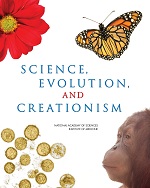
How did life evolve on Earth? The answer to this question can help us understand our past and prepare for our future. Although evolution provides credible and reliable answers, polls show that many people turn away from science, seeking other explanations with which they are more comfortable.
...more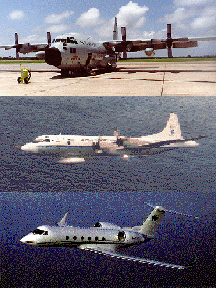
Why do the 53rd Weather Reconnaissance Squadron and the Hurricane Research Division use different airplanes? Actually, they only use two main types. The top two airplanes in the graphic, the WC-130H Hercules
...more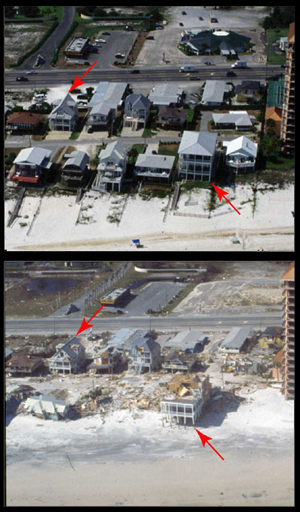
Hurricanes are powerful and can cause lots of damage. They can change natural environments. They can also damage the places where people live, work and play. When a hurricane is over the ocean, wind and
...more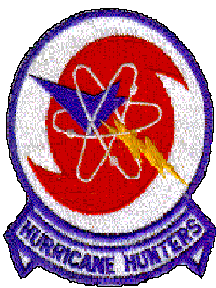
The official "Hurricane Hunters" are part of the Air Force. They fly into hurricanes to get information. Scientists use this information to make forecasts. What information do they get and why is it important?
...more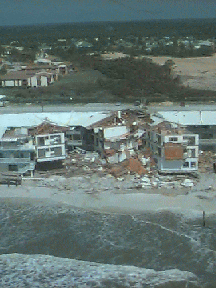
A tropical cyclone is a storm that forms in the tropics. A hurricane is one kind of tropical cyclone. In fact, it's the strongest tropical cyclone. Tropical cyclones are given names by how strong their
...more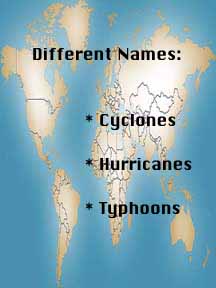
Different places in the world call tropical cyclones by different names. If you click on the image at left you will see which areas use "cyclone", which use "hurricane", and which use "typhoon" when refering
...more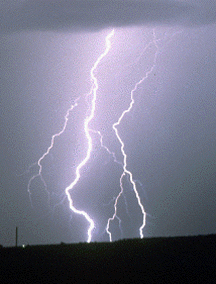
Here's a safe and easy way to make lightning. You will need a cotton or wool blanket. This experiment works best on a dry, cool night. Turn out all the lights and let your eyes adjust to the darkness.
...more
It takes 3 seconds for sound to travel 1 kilometer (5 seconds to travel 1 mile). The next time a thunderstorm comes your way, look out your bedroom window and watch for lightning. When you see a lightning
...more













